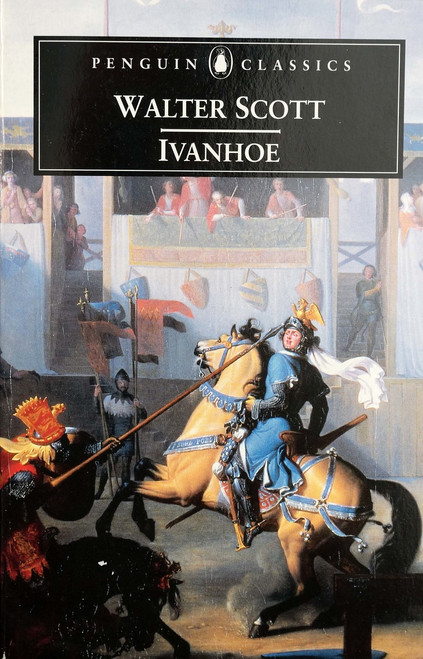"Fight on, brave knights! Man dies, but glory lives!"
Crowded with incident and full of memorable characters, among them wicked Prince John, the outlaw Robin Hood and the beautiful Jewess Rebecca, Ivanhoe is Scott's most high-spirited novel.
Ivanhoe, banished by his father, Cedris, for falling in love with Cedric's ward Rowena, wins the trust of Richard Coeur-de-Lion at the Crusades. Returning to England to claim his inheritance, Ivanhoe is drawn into the struggle between Richard and his brother John. In the three central scenes of the book - the great tournament at Ashby-de-la-Souche, the siege of Front de Boeuf's castle and Rebecca's trial for witchcraft - Scott draws together the apparently opposing themes of historical reality and chivalric romance, social realism and high adventure, past and present.
This edition is edited with an introduction by Graham Tulloch, Professor of English at Flinders University, Adelaide. He was educated at the universities of Adelaide and Leicester and is the author of The Language of Walter Scott (1980) and other works on Scottish literature and language. He has also edited Marcus Clarke's His Natural Life and Catherine Martin's An Australian Girl.
About the Author
Sir Walter Scott (1771-1832) was born and educated in Edinburgh. He was a poet, a playwright, and the author of twenty-seven historical novels, including Ivanhoe, Rob Roy, and The Lady of the Lake. He is credited with establishing the form of the historical novel.




